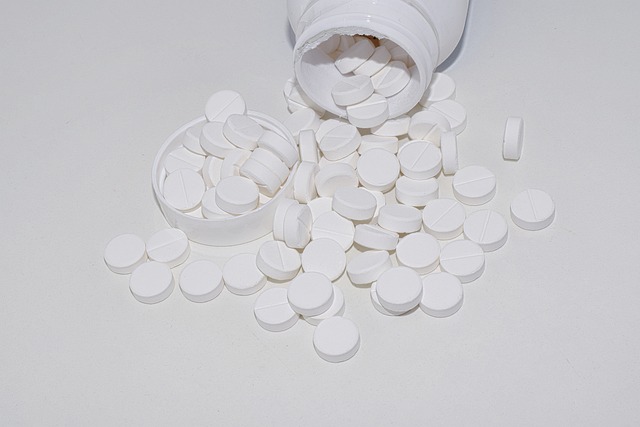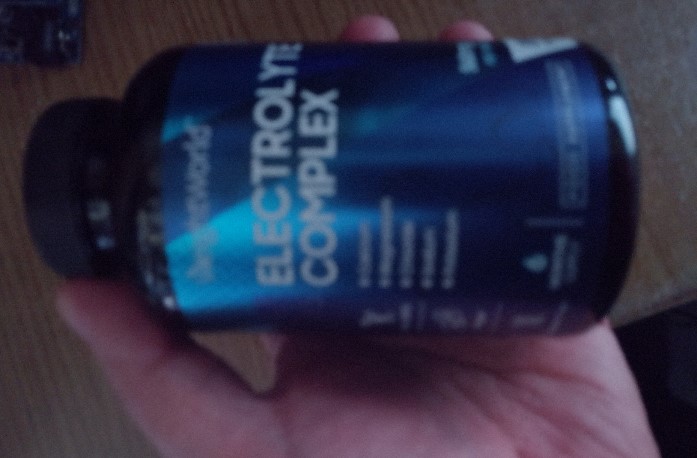Are you considering a keto diet?
If so, one of the most essential components of your successful transition to a ketogenic lifestyle is proper electrolyte balance. Electrolytes play an essential role in keeping your cells and organs functioning properly. They are responsible for a variety of bodily functions including hydration, muscle and nerve function, and energy levels.
What are Electrolytes?
Are you considering a keto diet?
If so, one of the most essential components of your successful transition to a ketogenic lifestyle is proper electrolyte balance. Electrolytes play an essential role in keeping your cells and organs functioning properly. They are responsible for a variety of bodily functions including hydration, muscle and nerve function, and energy levels.

In this article, we’ll discuss the importance of electrolytes on a keto diet, how to get them, and how to ensure adequate electrolyte intake on a keto diet. We’ll explore the various sources of electrolytes and look at ways to increase intake, such as increasing your salt intake and taking mineral supplements. We’ll also discuss the importance of drinking plenty of water and consider the advantages of low-carb snacks for meeting electrolyte needs.
By the end of this article, you’ll have a better understanding of the essential role electrolytes play in a keto diet and how to ensure that your body has adequate intake.
Why are Electrolytes Important in a Keto Diet?
Electrolytes play an essential role in the keto diet and can help to ensure that your body is properly hydrated, your electrolyte balance is maintained, and your muscles and nerves are functioning properly.
In this section, we will look at how electrolytes can aid in hydration, support electrolyte balance, and maintain muscle and nerve function.
Aid in Hydration
Electrolytes are important in a Keto Diet because they are essential for the body’s hydration balance.
The keto diet encourages your body to shed water, which is why it is important to ensure that sufficient electrolytes are consumed to maintain hydration. Adequate hydration is critical in a Keto Diet as it helps maintain muscle performance and energy levels. When hydrated, the body naturally produces hormones and enzymes that are necessary for your body to function optimally.
Furthermore, adequate hydration levels can help reduce potential negative side effects of a Keto Diet, such as headaches and dizziness. Therefore, consuming the proper amount of electrolytes on a Keto Diet is an important part of overall health.
Support Electrolyte Balance
Electrolytes are essential for proper cellular functioning and help to maintain the body’s acid-alkaline balance. One of the challenges of following a Keto Diet is the risk of electrolyte depletion, due to its high-fat, low-carb nature, as carbohydrates are often a main source of electrolytes.
To maintain electrolyte balance and optimize your Keto Diet, make sure to include foods that are rich in electrolytes such as avocados, coconut water, bone broth, fish, grass-fed dairy, olives, and dark leafy greens.
Additionally, consider adding a mineral supplement to your diet to support electrolyte balance.
Maintain Muscle and Nerve Function
Electrolytes play an essential role in helping to maintain muscle and nerve function while on a Keto Diet.
High levels of electrolytes are required to ensure that electrical signals are carried from the brain to the muscles and throughout the nervous system, allowing for proper movement and muscle contractions. Not getting adequate electrolytes can lead to muscle cramping, fatigue, and poor muscle strength.
This can lead to a frustrating and potentially dangerous experience for those on a Keto Diet. Therefore, it is important to include the proper electrolytes such as sodium, potassium, and magnesium in your diet to maintain muscle and nerve function.
Sources of Electrolytes
While reducing carbs, it is essential to supplement your diet with essential electrolytes.
Salt, potassium, and magnesium are all three essential electrolytes that can be sourced from dietary or supplemental sources in order to remain healthy and balanced on a keto diet.
In this section, we will discuss the importance of each electrolyte, as well as the key dietary sources of each.
Salt
Salt is one of the essential electrolytes needed on a Keto Diet. Salt helps to replace sodium and chloride lost through sweat while also keeping the body hydrated.
It is also a natural source of beneficial minerals such as potassium, magnesium, and calcium. On a Keto Diet, it is important to be mindful of the amount of salt consumed and to choose unprocessed, or “real” salt, as it may have a better balance of electrolytes and can be higher in minerals.
The American Heart Association recommends that people on a Keto Diet consume no more than 2,300 milligrams (mg) of sodium per day. So, don’t forget to include salt in your Keto Diet to ensure you are getting adequate electrolytes.
Potassium
Potassium is an electrolyte mineral that plays an essential role in a Keto Diet. It helps regulate blood pressure, and aids in proper muscle and nerve functionality.
Many of the foods consumed in a Keto Diet are potassium-rich, such as avocados, salmon, and mushrooms.
Additionally, electrolyte supplements, like potassium citrate and potassium chloride, can be taken to increase potassium levels in the body while following the Keto Diet.
Magnesium
Magnesium is an essential electrolyte in a Keto Diet. It helps to control nerve and muscle function, and it can also help to maintain normal blood sugar levels.
Magnesium can be found in several food sources, such as nuts, green leafy vegetables, and whole grains. It can also be found in electrolyte drinks and supplements specifically designed for Keto Diets.
To ensure your body has enough magnesium, it is important to get adequate levels of dietary magnesium, as well as supplements if necessary.
How to Ensure Adequate Intake of Electrolytes on a Keto Diet
On a keto diet, it is important to ensure adequate intake of electrolytes in order to maintain good health.
This section will discuss four methods you can use to ensure adequate electrolyte intake on a keto diet, including increasing your salt intake, taking mineral supplements, trying low carb snacks, and drinking plenty of water.
Increase Your Salt Intake
:
A key component to ensuring adequate intake of electrolytes on a Keto Diet is to increase your salt intake. When on the Keto Diet, your body loses salt more quickly than when on a higher carb diet, which can lead to electrolyte imbalance.
The best type of salt to increase your intake of is unrefined salt, such as Himalayan or sea salt. This type of salt contains trace minerals which are beneficial for electrolyte balance.
Additionally, you can add it to foods and drinks to make sure that your body is getting the amount of salt it needs.
Furthermore, be sure to drink plenty of fluids to help your body properly absorb the sodium and other electrolyte minerals.
Take Mineral Supplements
: Though a Keto Diet can provide adequate dietary minerals to meet the body’s needs, it may be beneficial to take mineral supplements to ensure adequate intake of electrolytes, particularly during the early stages of following the diet.
While the exact amounts of sodium, potassium, and magnesium needed will vary depending on your activity level and other factors, it is generally recommended to get around 4000-5000 mg of sodium, 3000-4000mg of potassium, and 300-400mg of magnesium per day.
Additionally, adding in a quality multivitamin can provide additional assurance that you are getting the minerals you need for optimal health.

Try Low Carb Snacks
Low-carb snacks can help to ensure that you’re getting the necessary electrolytes on a Keto Diet. Aim for snacks that include some sodium and potassium, such as nuts, cheese, olives and avocado slices. Other good sources of electrolytes include broth, pickled vegetables and seeds or nut butters. You should also look out for low-carb drinks, such as Keto-certified electrolyte drinks, that can be taken periodically throughout the day. It’s important to remember not to over-consume salty snacks, as this can cause water retention and result in dehydration.
Drink Plenty of Water
It is essential to stay hydrated while following a Keto Diet. Staying hydrated helps to regulate electrolyte intake and keep the body functioning properly. Drinking plenty of water can help maintain adequate electrolyte levels and prevent dehydration.
Since on a Keto Diet, the body is in a state of ketosis, it is at a higher risk of dehydration than usual.
Additionally, it is important to avoid sugary beverages as they can throw off electrolyte levels and negatively affect the body’s ability to manage electrolytes.
Instead, opt for more natural sources of hydration such as water, teas, and electrolyte solutions.
It should also be noted that the most important form of water is mineral water or to create your own. Too much tap water and we mean a lot can actually make the problem worse.

